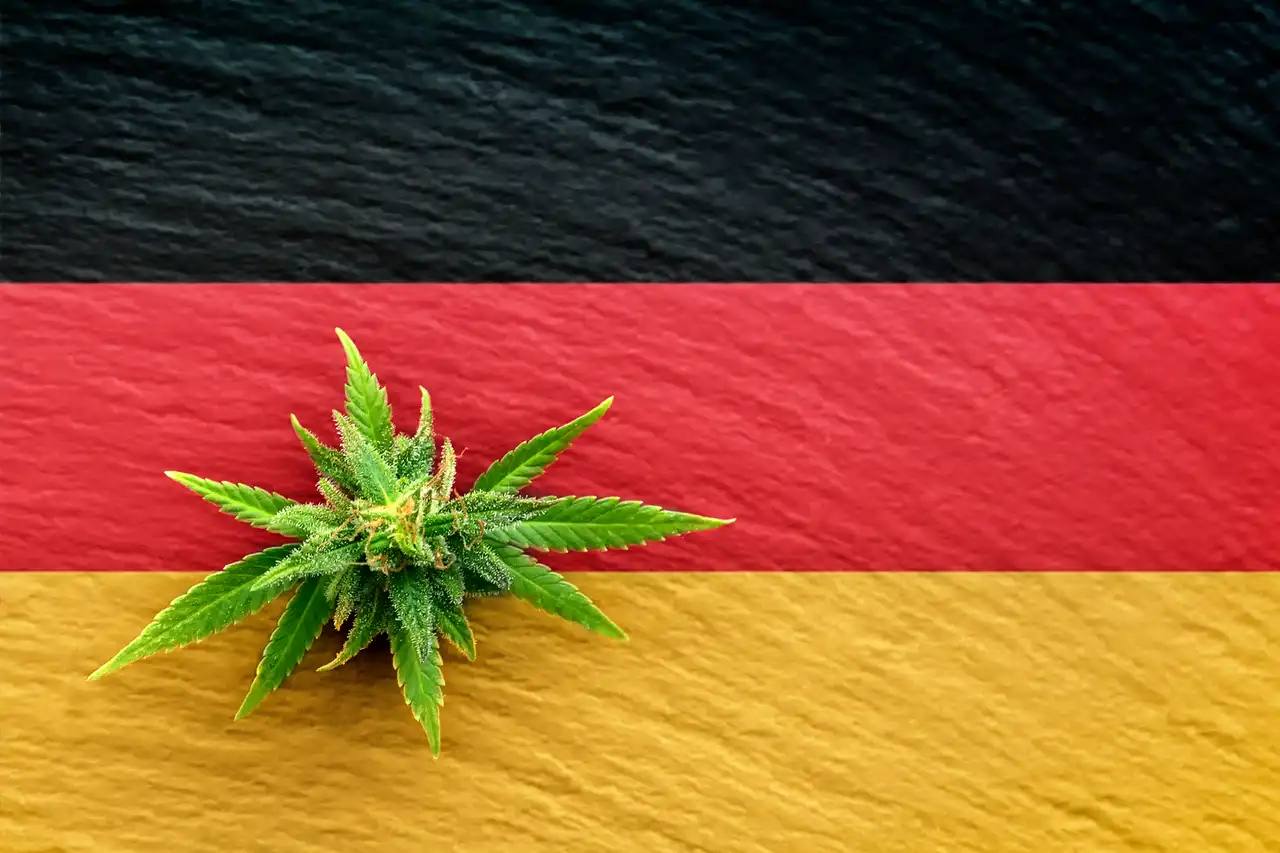Germany Legalize Cannabis

In a landmark decision, Germany's federal parliament, the Bundestag, has approved a far-reaching bill to fully legalize cannabis across the nation. This groundbreaking development marks a significant shift in drug policy for Europe's largest economy. After extensive deliberations spanning over many months, the bill garnered approval via a 407-226 vote count, illustrating substantial support amongst the legislature. Nevertheless, opposition remains present, particularly from conservative factions with ever getting weak arguments.
Once implemented, the newly adopted legislation permits both possession and cultivation of cannabis for adult individuals. Additionally, the law establishes designated social clubs wherein members can legally acquire the substance. As the bill advances towards the Bundesrat, a separate legislative entity tasked with representing the interests of Germany's federal states, anticipation builds surrounding potential changes to national drug laws. Although unable to veto the proposed reform, the Bundesrat holds the power to influence specific components related to criminal justice matters.
Previously slated for initiation in April, should the law gain formal endorsement, mounting speculation suggests possible delays owing to the likelihood of the Bundesrat seeking extended discourse on crime-centric facets of the act. Such discussions might add several months to the ratification procedure.
This momentous turn of events stems from a collaborative effort between three major political entities known collectively as the 'traffic light coalition', namely the Social Democratic Party (SPD), the Greens, and the pro-business Free Democratic Party (FDP). Their combined efforts facilitated consensus despite lingering misgivings, enabling progression of the contentious issue. While numerous obstacles emerged along the way - most notably within the SPD ranks - the long-awaited resolution transpired mere days subsequent to comprehensive reviews conducted by eight distinct parliamentary panels.
As the culmination of years-long commitment unfolds, politicians from opposing sides presented fervent appeals prior to the pivotal balloting event. Representatives hailing from the centre-right Christian Democratic Union (CDU)/Christian Social Union (CSU) alliance earnestly endeavored to impede the motion, citing fears of exacerbating existing pressures upon the fragile healthcare infrastructure, as well as heightened dangers linked to diminished mental acuity resulting from cannabis utilization.
Conversely, proponents of the bill accentuated anticipated benefits, focusing on reduced illicit trade activities, enhanced safeguards for vulnerable adolescents, and elevated standards pertaining to overall quality and purity levels of consumed products. These assurances resonated with sizable segments of the Bundestag membership, propelling the initiative past critical junctures.
Notably, even skeptical voices within the ruling coalition gradually warmed up to the proposition, leading to crucial concessions aimed at alleviating underlying apprehensions. Amongst those amendments were liberalizations concerning private grow limits, elimination of incarceration penalties tied to minor excesses beyond prescribed boundaries, and a phased introduction strategy setting forth incremental stages for complete realization of the ambitious undertaking.
Interestingly enough, data extracted from a recent study commissioned by news outlet YouGov reveals that roughly half of Germany's populace favours cannabis decriminalization, whereas approximately forty-two percent remain steadfastly opposed. Furthermore, nearly eleven percent abstain from forming definitive opinions either way.
Initially envisioned by coalition partners shortly after assuming office in late 2021, the pathway to approving cannabis legalization proved arduous yet fruitful. Throughout this period, diverse stakeholders actively participated in shaping the evolving landscape, often engaging in spirited debates centred around core principles and practical applications.
In response to preliminary critiques raised by medical professionals and law enforcement agencies, authorities responsible for drafting the legislation underscored the importance of accompanying educational campaigns geared towards raising awareness about potential hazards associated with cannabis consumption. By doing so, they hoped to mitigate unwanted consequences and foster informed choices amongst citizens.
Alongside internal consultations, representatives from Germany engaged in multinational dialogues intended to facilitate knowledge exchange and promote harmonization of emerging regulatory models. Noteworthy examples include a gathering hosted by Germany in November 2022, attended by delegates from various nations including the United States, aiming to explore shared challenges and opportunities inherent in cannabis policy reforms.
Additionally, a contingent comprising German parliamentarians and Narcotics Drugs Commissioner Burkhard Blienert embarked on an exploratory mission to California in 2022, examining local best practices directly applicable to future domestic implementations.
These experiences served to bolster confidence amongst German policymakers whilst simultaneously highlighting areas necessitating careful consideration moving forward. Encapsulating these insights, Justice Minister Marco Buschmann summarized the prevailing sentiment thusly: "Our goal is clear: to replace illegal supply structures with controlled ones, thereby ensuring greater protection for human health while effectively combatting organised crime."
In his opening statement during the final reading, Health Minister Karl Lauterbach stated: "With today's decision, we fundamentally change our cannabis control policy in order to fight the black market." He added that the primary goals of the reform include improved child protection and a necessary modernization of cannabis policies given the high rate of youth usage.
Green Party member Kirsten Kappert-Gonther expressed her support for the bill, describing the current prohibition regime as absurd and claiming that regulated markets will prevent minors from obtaining cannabis on every street corner. Kristine Lütke of the Free Democratic Party echoed these sentiments, stating that legalization strengthens personal freedoms while providing consumers with safer alternatives.
Indeed, such aspirations appear increasingly attainable as legalization gains traction domestically, potentially inspiring similar transformations elsewhere within the continent. Concurrently, however, persistent reservations warrant continued vigilance and dialogue, factors integral to refining the intricacies of this bold new direction in German drug policy.









